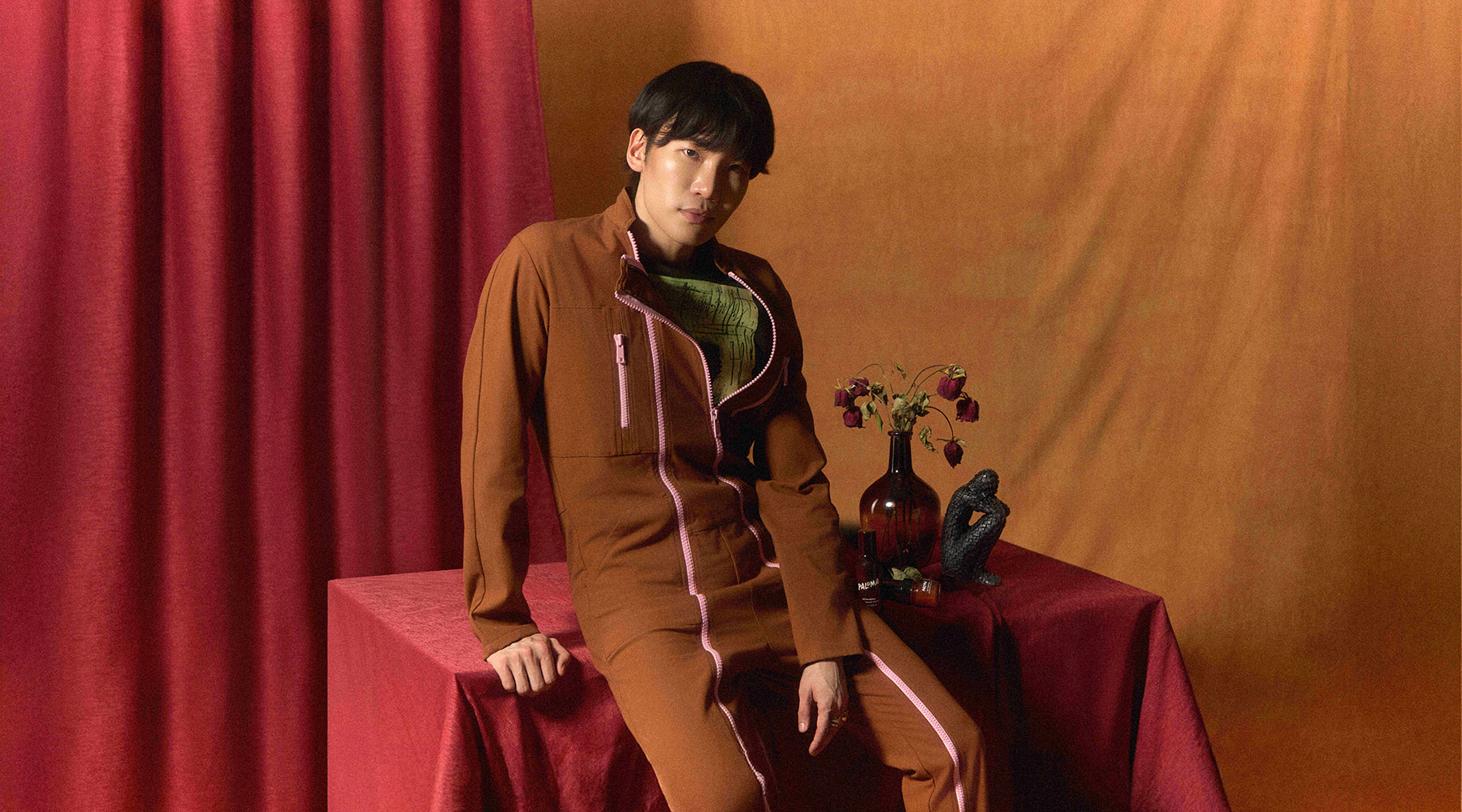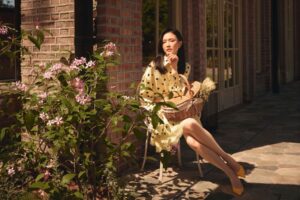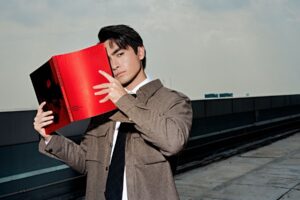For many millennials growing up in typical Asian households, the concept of success is often tethered to a few conventional career choices: doctor, lawyer, or engineer. Perhaps finance too, if you’re lucky. But for Koh Li Tim, whose father founded the acclaimed interior design firm Environment Design Consultancy (EDC) and whose mother studied fashion design, the path forward was always going to be creative.
The 35-year-old aesthete didn’t so much choose artistic pursuits as he inherited it – by nurture, exposure, and intuition. “Creativity was always at the centre of the time we spent together, you know, travelling and the things we do as a family,” Li Tim opens up.
He pauses mid-sentence to direct our hairstylist – casually combing his hair with fingers adorned in intricate rings – before continuing to recount fond memories of vintage shopping around Europe and globetrotting adventures with his parents that helped shape his right-brained worldview.
Though he first flirted with the fantasy of fancy cars – studying automotive design in London – it wasn’t long before the gravitational pull of the family business called him home. His return, however, is far from mere succession. What Li Tim brings to the table is shaped by tradition, curiosity, and an ever-evolving aesthetic lens.
Carving a new path for the family legacy
As the Director of Business Development at EDC, Li Tim plays a defining role in its next chapter – balancing the firm’s respectable legacy with fresh ideas, new clients, and untapped markets. “Hopefully, I bring in more clients – hotels that might not be in my dad’s network,” he says with measured ease.
With a solid portfolio of high-end hospitality clients across Southeast Asia, EDC has long enjoyed a reputation that preceded them. “We never really had to market ourselves. We’ve been fortunate that hotel groups keep us on their recommendation lists, so work finds us. But what I’m trying to do now is actively grow the business in new directions.”
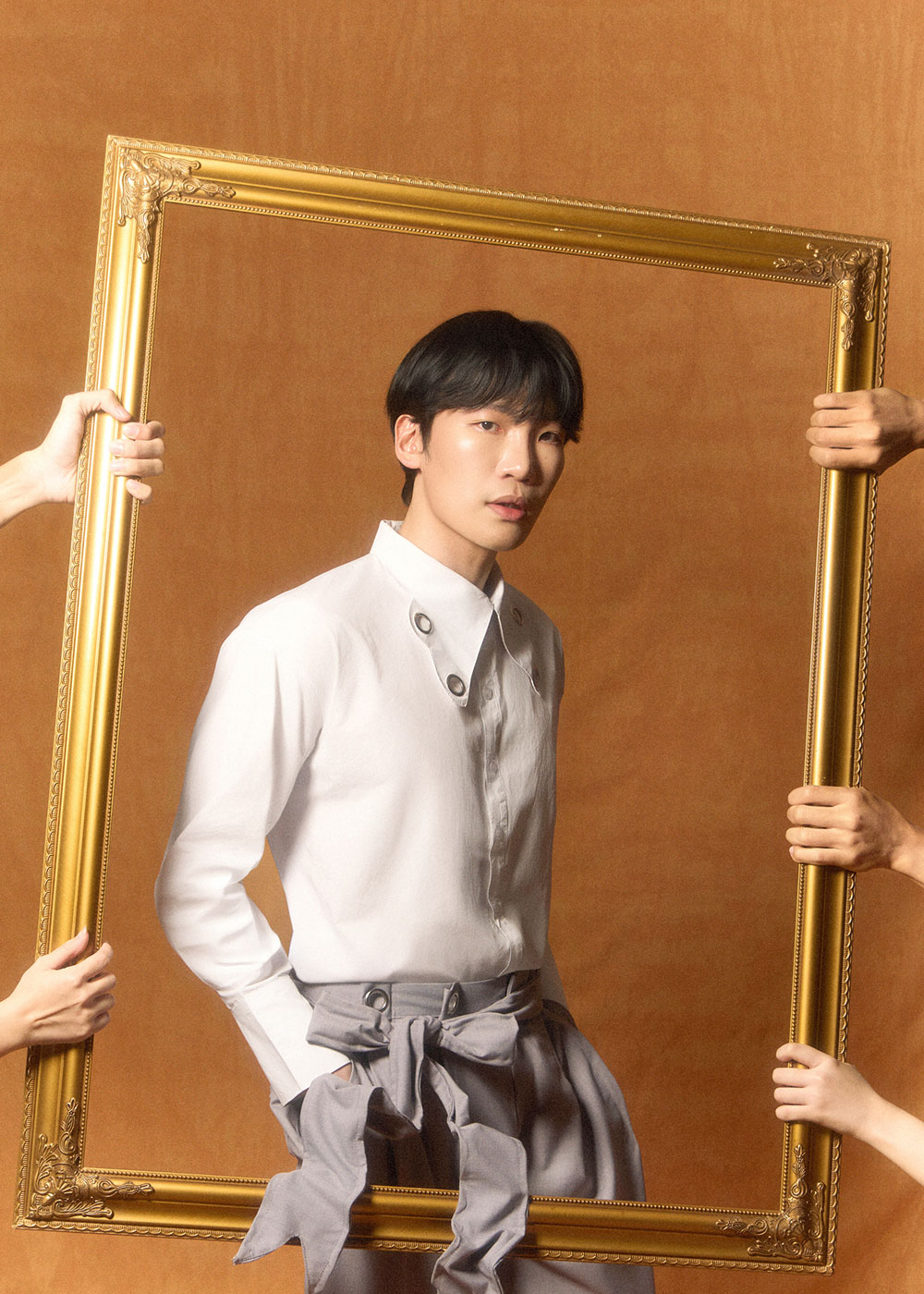
This means forging relationships outside the firm’s existing circles and being deliberate about where and how EDC shows up. “We’ve kept [the firm] small on purpose. My dad is still very hands-on, and a lot of clients really want that direct engagement. That’s something big firms can’t always offer,” he points out.
Among their standout projects include the Park Hyatt in Ho Chi Minh; Hyatt Regency in Kathmandu (erected on a UNESCO heritage site); and more recently, Anantara Ubud Bali Resort. “That one’s pretty cool,” he shares, eyes lighting up at the mention of the Balinese property that opened last October. “There’s this sound sculpture made out of musical instruments – it’s interactive and it feels alive.”
He’s also beginning to diversify the company’s portfolio. “Right now, we’re working on a luxury residential property with some friends,” he adds. “It’s not something we typically do – our bread and butter is still hotels – but I brought in the work, so it feels great to see it coming to life!”
“Function always comes first. There’s no point in something that just looks good but doesn’t work. That’s not good design.”
Although not directly involved in design consultancy, Li Tim holds deep respect for functionality and spatial experience, shaped by his travels and experiences of living abroad. When asked about balancing form and function, he replies without skipping a beat, “Function always comes first. There’s no point in something that just looks good but doesn’t work. That’s not good design.”
For him, beauty is in how a space interacts with people, not merely how it photographs. “Spatial planning is so underestimated. It’s not about vastness. It’s about what happens as you move through a space – how well things are thought out and fit naturally where you need them.”
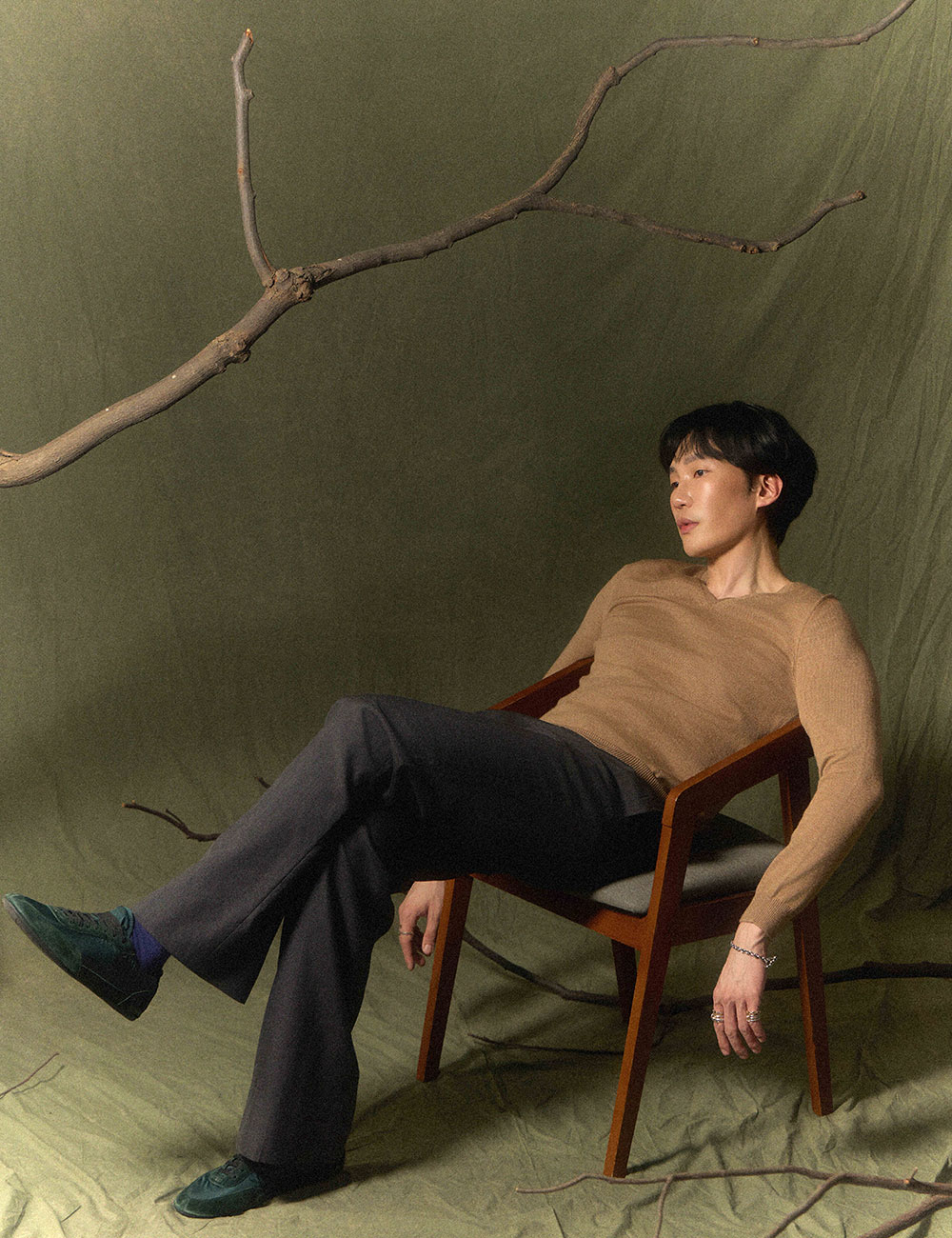
Beyond interiors: Designing for the skin
Speaking of beauty, it’s this same intentionality – where function is just as important as form – that Li Tim brings to his latest venture: skincare. A serendipitous encounter with his co-founder’s family friend, who works as a scientist cultivating Southeast Asian herbs for cancer research, led to the conception of Paloma.
“There’s so much we don’t know about our land, our ingredients. So, we started exploring skincare formulations with this doctor who has specialised in cosmetology for 30 years, and the results were impressive. That’s when we thought: This is what we should highlight – our home,” he elaborates.
Launched in 2023 alongside his business partners, Sheryl Oon and Howie Lee, Paloma is a beauty brand rooted in efficacy, heritage, and cultural storytelling. Their approach to skincare is about crafting an experience that feels seamless and deliberate – anchored by meaning, not just visual appeal.
“We haven’t seen Malaysian or Southeast Asian ingredients in the global spotlight, and we want to change that.”
Instead of chasing trends, the brand highlights the untapped potential of local superfoods such as pegaga, noni fruit, ginger root, snow fungus, and more. These ingredients are not necessarily new to the skincare industry, but few draw parallels to their use in our region’s ancient practices such as Traditional Chinese Medicine (TCM), Traditional Malay Medicine (TMM), or Ayurveda.
“You have your East Asian and South Asian skincare brands using turmeric and saffron, but we don’t really have anything that’s ours. We haven’t seen Malaysian or Southeast Asian ingredients in the global spotlight, and we want to change that,” he explains.
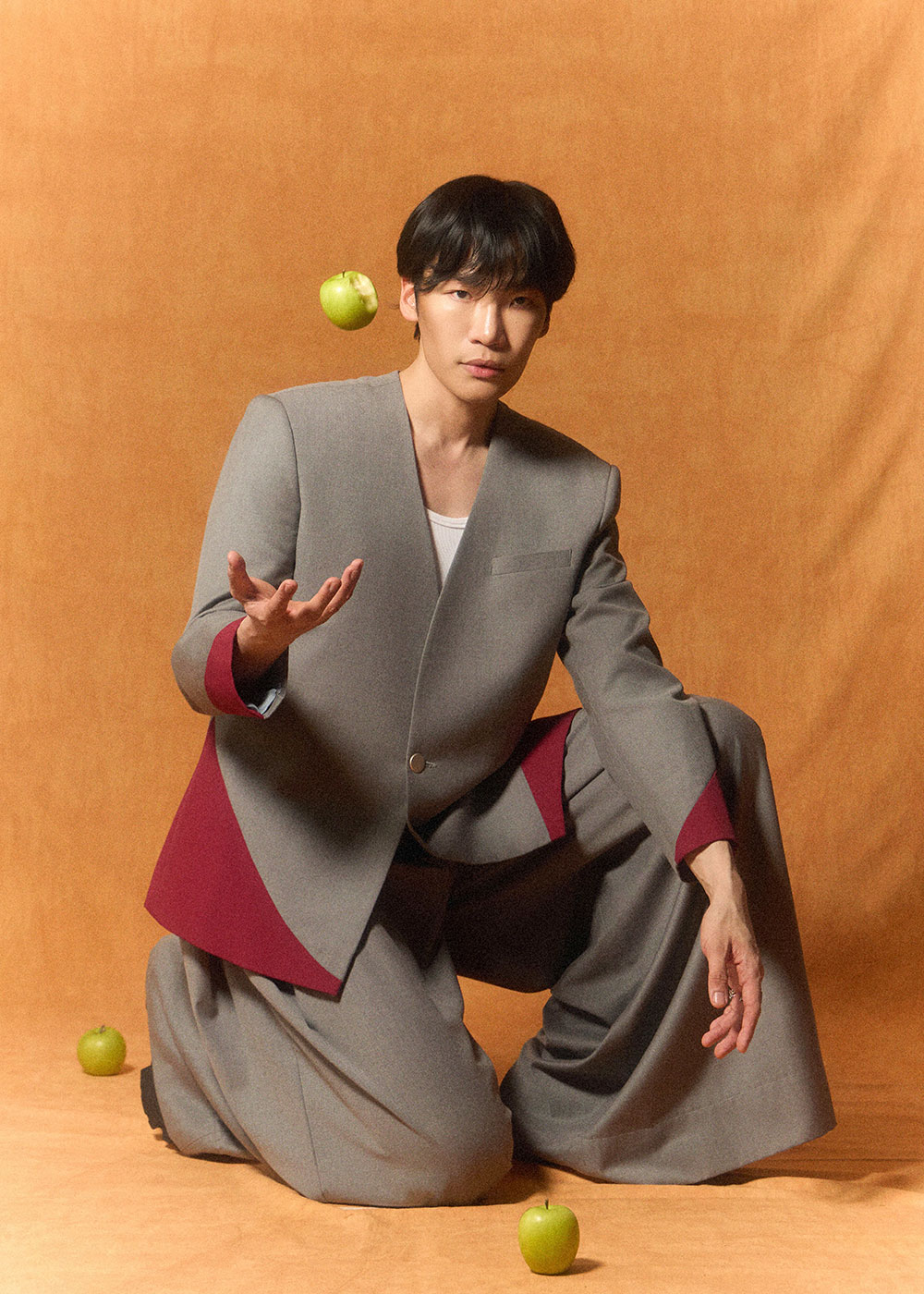
Paloma’s product range includes the Kind Cleanser for gentle barrier support, the antioxidant-packed 24/7 Repair Serum for anti-ageing, and a soon-to-launch moisturiser (dropping 9 May). The products are formulated “to restore the people”, especially those with dry, sensitive skin like Li Tim. “It’s made for people like me; people who don’t want to think too hard,” he says, stressing simplicity without compromising efficacy.
Take it from the guy who has been religiously using skincare since high school, courtesy of his mother, who introduced him to the iconic SK-II Facial Treatment Essence. And it shows – both through the photos from our cover shoot and as we speak to him in person, skin glowing and all.
“People should trust me because I try everything,” he says with a laugh, adding on a more serious note, “I’m a really tough consumer myself, so I test all our products to make sure they’re good enough – by my standards.”
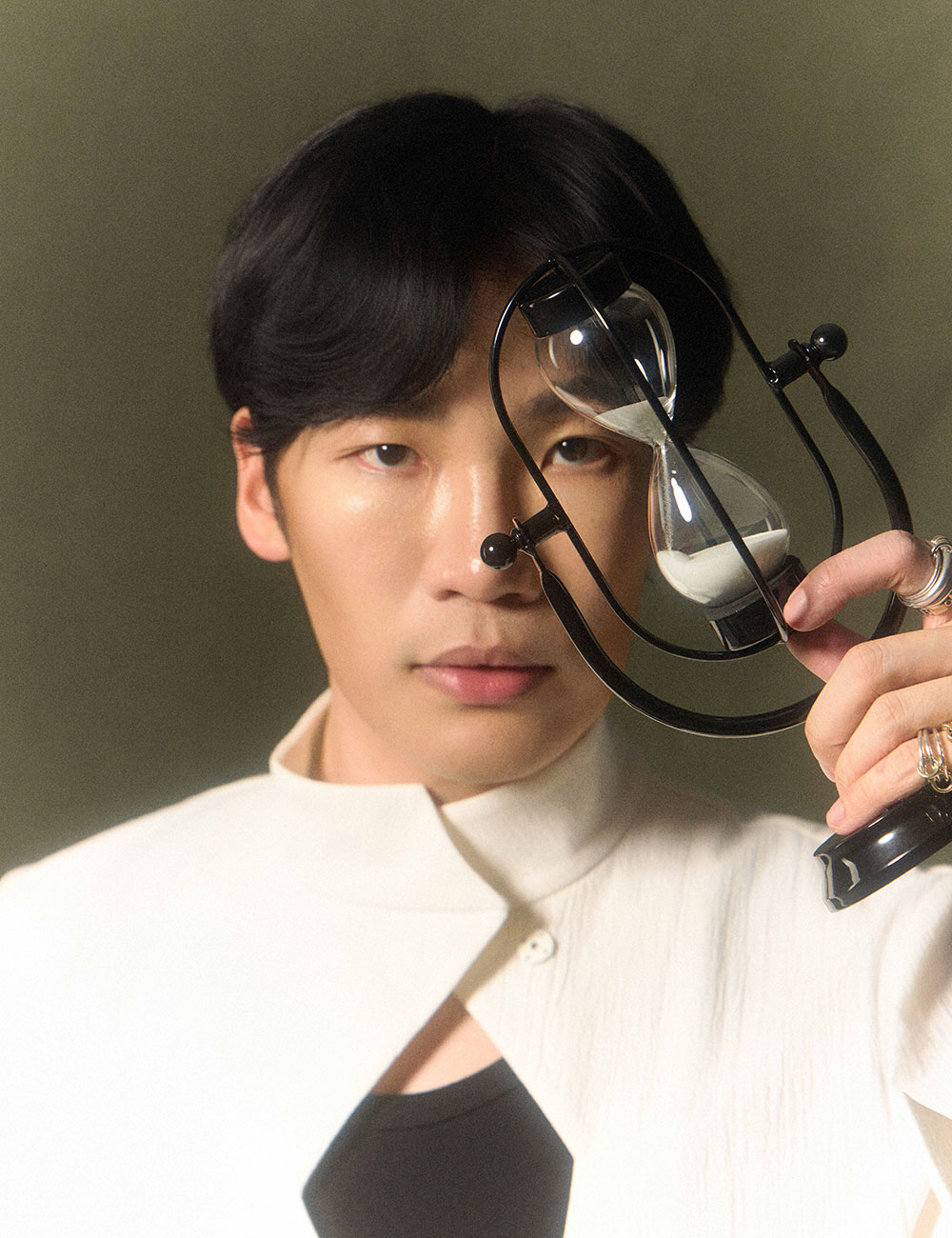
An appreciation for artistry
Much like his perspective on design, Paloma is infused with a deep sense of aesthetic purpose. Just scroll through the brand’s Instagram page and you’ll find artworks portraying our local culture and lifestyle, alongside hand-drawn sketches of the traditional herbs used in their products. “We want to highlight art – not necessarily fine art – but artists in general. Whether it’s craftsmen or artisans, it’s about our people. A little like what Jonathan Anderson did at Loewe,” he muses.
At its heart, Paloma is a love letter to Malaysia. Reflecting on the legacy he hopes to impart, Li Tim says, “At the end of the day, we worked so hard at our formulations, so it has to work – that’s the first thing. And the second is to offer a slice of our home. There’s so much goodness here that’s underrepresented.”
“We want to highlight art – not necessarily fine art – but just artists in general. Whether it’s craftsmen or artisans, it’s about our people.”
His vision is to take Southeast Asian ingredients global, beginning with the U.S. market. “The dream is Sephora U.S – they have this New and Upcoming section with your Youth to the People and Glow Recipe and Summer Fridays. When I stand there, it’s like I can cry just imagining myself on the shelves,” he enthuses.
Whether it’s a thoughtfully composed room or a high-performance cleanser steeped in cultural traditions, Koh Li Tim’s creative journey reflects a deep reverence for his roots. He isn’t simply jumping on the beauty bandwagon or expanding the family business; he’s creating space for design, heritage, and art to coexist in all its forms.
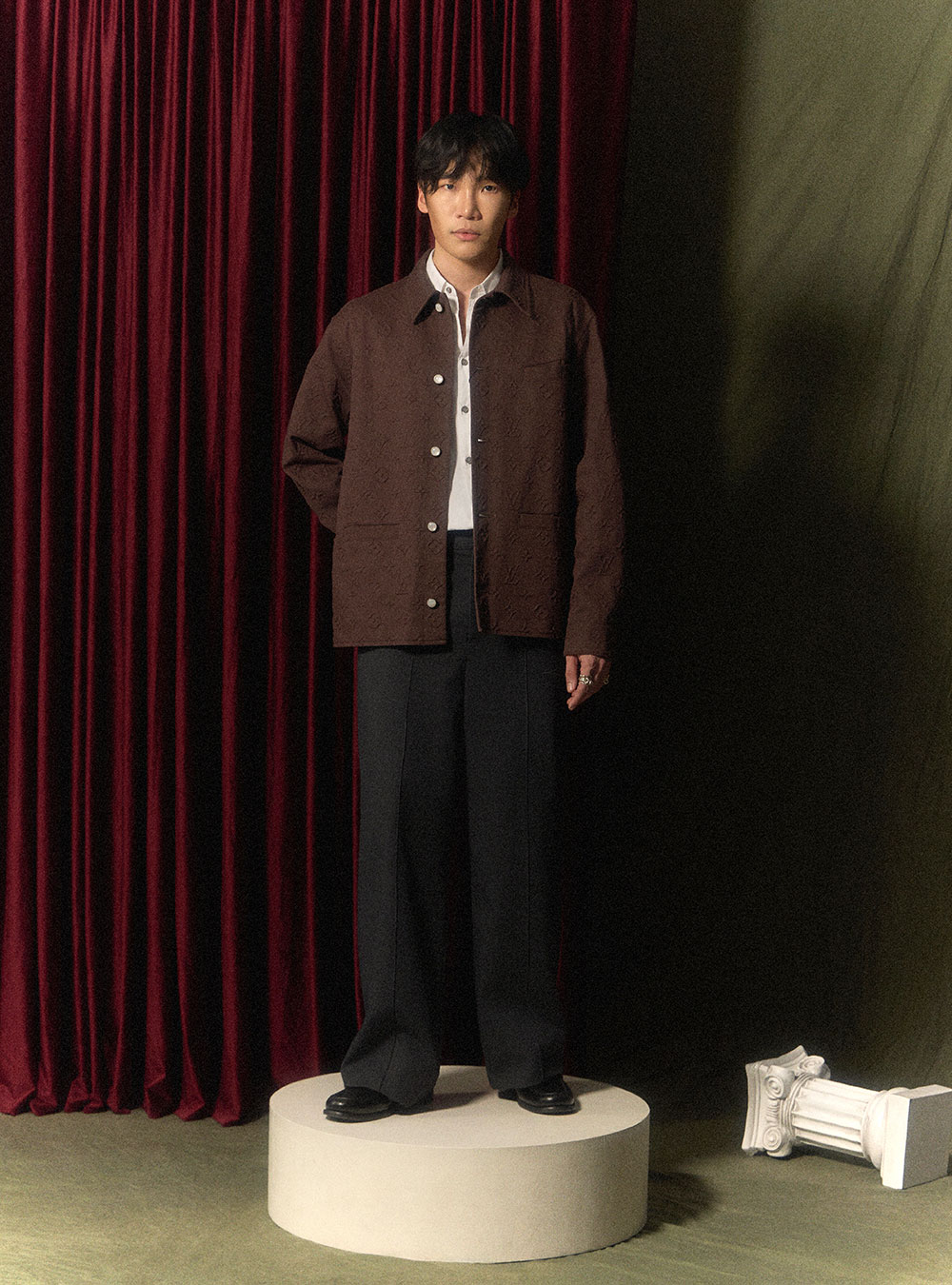
Featured image: Li Tim wears a full outfit from Prada
Editor and words: Natalie Khoo
Creative direction: Driv, assisted by Imran Sulaiman
Coordination: Chin Yi Ting
Photography: Herry Chia Ee | Herry Studio
Lighting assistants: David Ong
Video concept: Natalie Khoo
Videography: Khairul Irsyaduddin
Video assistant and subtitles: Charmaine Loh
Styling: Isaac Chong, assisted by Zi Yin
Grooming: Zac Lee
Read more of our Inspire digital cover stories here.


